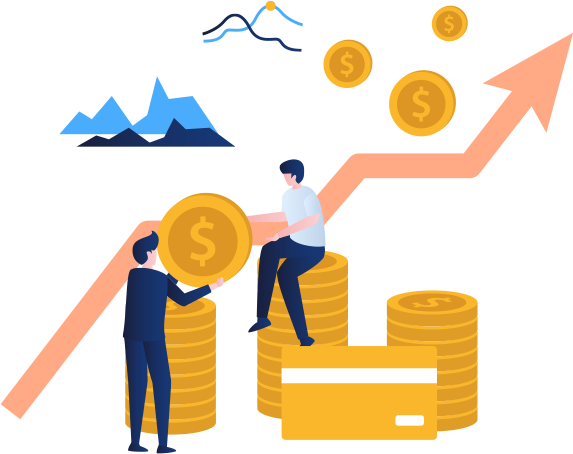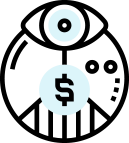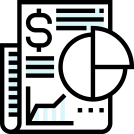
Address your income needs
At PSS, you can count on advice and guidance from fixed income specialists as well as low, straightforward pricing.
Enjoy High Spreads and Low commissions
PSS offers


*PSS reserves the right to act as principal on any fixed income transaction, public offering or securities transaction. When PSS acts as principal, the bond price includes our transaction fee (outlined above) and may also include a markup that reflects the bid-ask spread and is not subject to a minimum or maximum. When trading as principal, PSS may also be holding the security in its own account prior to selling it to you and, therefore, may make (or lose) money depending on whether the price of the security has risen or fallen while PSS has held it. When PSS acts as agent, a commission will be charged on the transaction.
Advantages of fixed-income investing

wealth

portfolio

income

rate risk
Basics of Bond Market
At PSS, you can count on advice and guidance from fixed income specialists as well as low, straightforward pricing.
What is the definition of a bond?
Bonds are fixed-income securities that are issued by corporations and governments to raise capital. The bond issuer borrows capital from the bondholder and pays fixed amounts to bondholders with a fixed (or variable) interest rate for a specified period.
What are key terms in bond trading?
Yield
The annual rate of return of a bond (assuming all payments are not delayed).
Face Value
The initial amount of money invested in the bond.
Maturity date
The date when the principal must be paid to the bondholder as the bond expires.
Coupon Rate
The interest that the bond issuer pays to the bondholder.
What are Par, Premium, and Discount Bonds?
Par: Coupon rate = Yield
Premium: Coupon rate > Yield
Investors will pay a premium (higher price) for a bond that offers a higher coupon rate than the average market.
Discount: Coupon rate < Yield
Investors will pay a discount (lower price) for a bond that offers a lower coupon rate than the average market.
Examples of Bond Trading
Company A issues five-year bonds on January 1, 2018. These bonds are Kr100 each and pay 5%. The yield (YTM) is 6%.
- What is the yield?
The yield to maturity (YTM) is 6%. - How much is the face value?
The principal is Kr100. - What is the maturity date?
January 1, 2023 (the maturity date is in five years from the issue date). - What is the coupon rate?
The coupon rate is 5%.
Company B issues two-year bond on March 1, 2018. These bonds are Kr500 each and pay 6%, with the first payment made six months after the issue date. The YTM is 6%.
- Which dates will the bondholder receive coupon payment?
September 1, 2018
March 1, 2019
September 1, 2019
March 1, 2020 - How much is the payment on each date?
September 1, 2018: Kr500 * (6%/2) = Kr15
March 1, 2019: Kr500 * (6%/2) = Kr15
September 1, 2019: Kr500 * (6%/2) = Kr15
March 1, 2020: Kr500 * (6%/2) + Kr500 = Kr515
*Note: 6%/2 because the coupon rate is annual but is paid semi-annually (divide by two because it is paid twice per year).
*Note: Last payment includes the principal amount.
Please note: It is important to keep in mind that investments in fixed income products are subject to liquidity (or market) risk, interest rate risk (bonds ordinarily decline in price when interest rates rise and rise in price when interest rates fall), financial (or credit) risk, inflation (or purchasing power) risk and special tax liabilities. PSS may act as either principal or agent on fixed income transactions. When acting as principal, PSS will add a markup to any purchase, and subtract a markdown from every sale. This markup or markdown will be included in the price quoted to you.
Market volatility, volume and system availability may delay account access and trade executions.
All annuity guarantees are based on the claims paying ability of the insurer.
Diversification does not eliminate the risk of experiencing investment losses.
This is not an offer or solicitation in any jurisdiction where we are not authorized to do business or where such offer or solicitation would be contrary to the local laws and regulations of that jurisdiction, including, but not limited to persons residing in Australia, Canada, Hong Kong, Japan, Saudi Arabia, Singapore, UK, and the countries of the European Union.
PSS does not offer its services to persons residing in the United States of America.
Request a call from our
dedicated team today.
Let’s build a relationship
get in touch
- Call, email 24/7 or visit a branch
- + 47 80 06 21 53
- helpdesk@pssinvest.com
Be sure to make appointment before you visit our branch for online trading service as not all branches have a financial service specialist.

